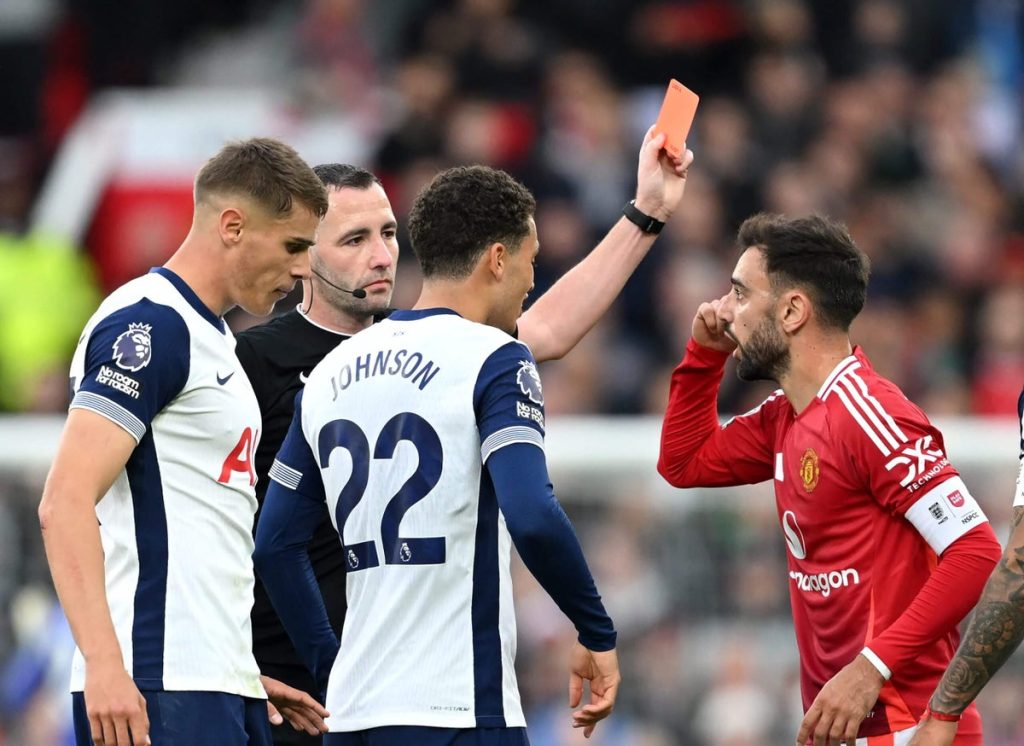The VAR system in English football has come under scrutiny following a controversial decision to send off Bruno Fernandes during a match at Old Trafford. Despite referee Chris Kavanagh issuing a red card due to a tackle on James Maddison, the FA’s disciplinary commission later upheld an appeal by Manchester United, stating the card was wrong. Video assistant referee, Peter Bankes, who had the chance to overrule the decision, chose not to intervene. This case highlights the differing views of on-field and off-field officials when examining the same footage, leading to public debate over the necessity and effectiveness of VAR.
At the heart of the VAR system is the belief that every decision has an objectively right or wrong outcome and with enough slow-motion replays, the correct decision can be made. However, the recent contradicting decisions call this theory into question. The differing opinions on whether Fernandes deserved a red card prove that objectivity in decision-making may be an unattainable ideal. The technology, despite its state-of-the-art capabilities, doesn’t seem to provide a definitive resolution to such debates.
The pursuit of complete accuracy in football decisions, particularly those involving serious foul play, has proven futile. The wide subjectivity of these issues reveals that thorough replay examination will not always lead to a universally accepted truth. In the case of Fernandes, the final decision remains as disputed as Kavanagh and Bankes’ initial ruling.
Another aspect of the criticism against the VAR system is its effects on the fan experience. The thrill of witnessing a goal and celebrating it has been replaced by the anticipation and nervousness of awaiting the final decision, often with no explanation or clarity provided. This uncertainty erodes the instant gratification of scoring and makes games less enjoyable for fans on the pitch and those watching at home.
Despite these issues, some argue for the continuation of VAR, citing the problem not as the technology itself, but in how it’s used. These proponents argue that if those involved are better trained, the goal of total objective accuracy is achievable. However, critics counter that this is an impractical argument. They assert that variables surrounding football, and human judgement itself, preclude the existence of indisputable correct answers.
The debate associated with VAR isn’t about improving or modifying its use but questioning its fundamental premise. Critics argue for its complete abolition to restore the sport’s emotional intensity and unpredictability. As such, the VAR system, which was designed to assist with decision-making in football games, appears to have elicited more confusion and controversy than clarity.


